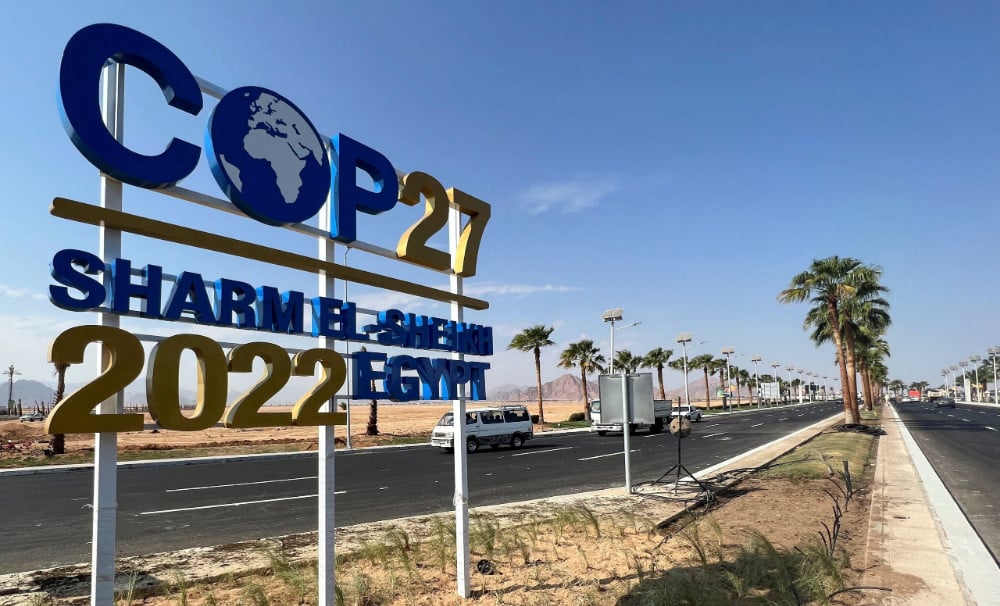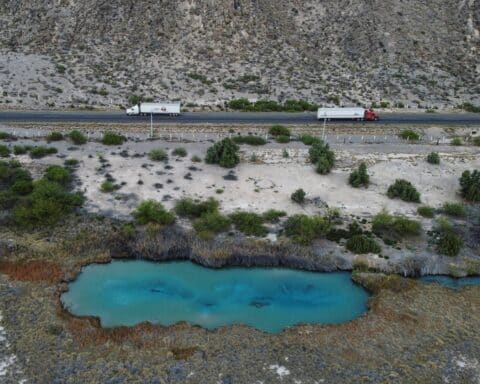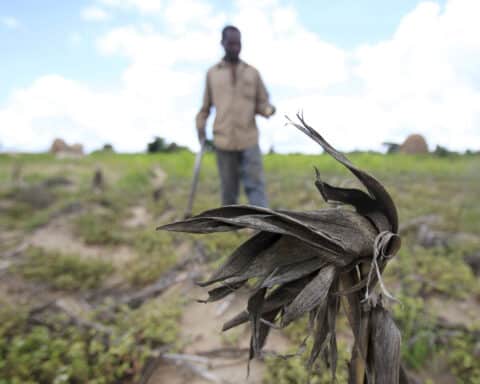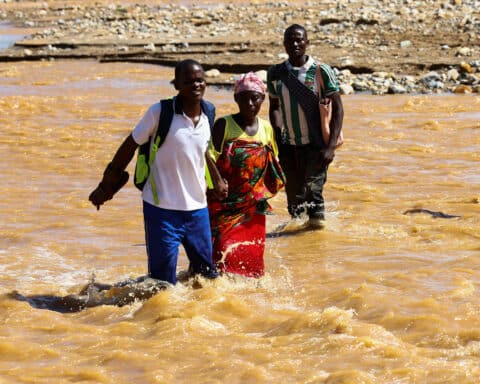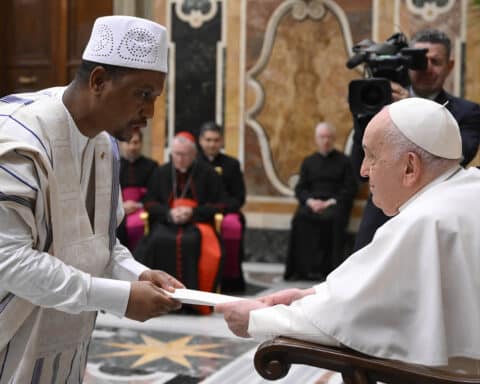(OSV News) – Nations “cannot fall short” on countering the changes taking place in earth’s climate, said a Catholic Relief Services representative at an annual U.N. climate summit.
Officials from close to 200 nations are meeting in Sharm el-Sheik, Egypt, for the Nov. 6-18 COP27 gathering, named for the “Conference of the Parties” that signed the original 1992 UN climate agreement.
Ari Shaw-Obasogie, a senior policy and legislative specialist with CRS attending COP27, spoke with OSV News by telephone from Sharm el-Sheik and shared her insights into how the gathering is a crucial opportunity to redress both environmental and economic imbalances. Based in Baltimore, CRS is the international humanitarian agency of the Catholic community in the United States.
OSV News: What are your top COP27 takeaways so far?
Ari Shaw-Obasogie: I would say the top takeaway thus far is that there is a lot of pressure coming from various stakeholders. No decision-making has happened yet. We’re in the very early days, but there is a lot of interest from NGOs (non-governmental organizations) like CRS and lower-income nations to (advocate for) more financing for key issues like adaptation, to compensate for the losses and damages that poorer nations, exposed to the effects of climate change, have experienced and continue to experience. … There is a lot of appetite from people who are participating in COP27 to see some bold, ambitious decisions.
OSV News: What does it look like at the summit – that is, what are the nuts and bolts of the meeting process?
Shaw-Obasogie: The gathering is about trying to engage as far as possible. The most important parts are the debates and dialogues where participants meet to form decisions on key assets. Today (Nov. 9) was finance day, and a lot of discussion took place on what various countries will be pledging.
Major decision-making happens within those dialogues. The discussions are sometimes opened up to NGOs, but often the talks are held behind closed doors where government officials can speak candidly. At the same time, there are a ton of side events taking place all day, every day, along with these dialogues.
OSV News: Speaking at COP27, United Kingdom Prime Minister Rishi Sunak said Russia’s war in Ukraine, along with rising energy prices, are “a reason to act faster” in confronting climate change. With Ukraine also a major global food supplier, what are your thoughts on the war’s effects here?
Shaw-Obasogie: I would say the Ukraine crisis has expedited a number of issues. A global food shortage was already coming, and (the war) ramped up the impact of climate change, really doubling down the effects. For people already experiencing this impact, such as those in the Horn of Africa, matters worsened. The early end of the rainy season in Somalia has basically created this prolonged drought condition in a very volatile, vulnerable region. Communities now have reduced purchasing power, and they can’t produce food on their own due to climate change. What do they do?
There are definite overlaps here, and now we’re seeing a worsening of all the drivers behind food insecurity throughout the world – COVID, climate change, inflationary costs and conflict.
OSV News: What are the main sticking points you’re seeing?
Shaw-Obasogie: I would say the main holdup now is loss and damage – basically, this idea that the biggest contributors (to climate change) have an obligation to compensate those most impacted by the crisis for losses and damages, both economic and non-economic. For example, countries and communities that have sustained flooding — from tropical storms or long droughts — have had stifled economic growth, development and progress, and they have basically had to go back to the drawing board and rebuild. At the end of the day, they have the least amount of resources, and the biggest number of consequences.
I was actually thinking yesterday of a case study looking at Madagascar, which in one rainy season had five cyclones back to back. It’s an island nation, a lower-income nation, and the communities hit were already very impoverished. These cyclones destroyed their lives. In some instances, their homes are no longer liveable. These are the things they are faced with battling.
There is a moral obligation for these bigger polluters to compensate such nations. That’s a huge focus of the conversations we’re having, and we are hopeful there will be some great outcomes.
OSV News: What approach is most effective in addressing climate change – one that starts at the local level, or one centered at the national and international levels? In other words, which is more effective: top-down initiatives on the part of government and corporations, or grassroots, bottom-up efforts?
Shaw-Obasogie: At CRS, our whole approach to how we implement change and action in the field, as well as what we are articulating as part of this summit, is that the most vulnerable are those who contributed the least to the climate crisis, but who unfortunately are the most disproportionately impacted by the crisis.
These communities are absolutely informed as to what’s happening, and they understand how it is impacting their livelihood and their incomes, and how it is displacing them.
And so our focus is leveraging local voices and local communities as our partners. We are working to support adaptation to help cope with the changes in climate, making (local communities) the key decision makers. We provide additional support and resources needed to empower these communities. It’s a partnership where they are informed and certain of the decision-making.
OSV News: But does that same approach work in the nations most responsible for impacting climate change? For example, is it simply a matter of those individuals and local communities recycling more or traveling less, or do governments and businesses need to play a greater role in promoting those and other strategies?
Shaw-Obasogie: It is correct to say that the Global North has a responsibility to ensure it is doing its part, especially regarding the major polluters, to reduce and cap carbon emissions and greenhouse gas emissions, and to ensure we stay below the 1.5 Celsius target (above pre-industrial temperature) the world committed to, in order to ensure we slow the effects of climate change. These nations, whether through their government or private sectors, are really the ones most responsible for the position we are in right now. So for the Global North, the approach should absolutely be about big companies, because these are big issues.
OSV News: If you were sending a postcard from COP27, what would you write?
Shaw-Obasogie: My message would be that climate change is happening, and it will continue to happen and will continue to affect everyone, but especially those who the most disadvantaged on our planet – the poor communities, the local farming communities, those who rely on (self-grown) food to sustain their lives. This is absolutely an issue of climate justice. … We cannot fall short on our commitment (to this issue). This is very important. People’s lives are at stake, and we have to act today. I would encourage everyone to visit us online at CRS.org/act, and register to be a part of our effort.
Gina Christian is a national reporter for OSV News.

